You don’t remember where or how it started, but you know that it began with a passionate explosion of sound somewhere in your room, with the banjo sound ringing out and making you question why you had not, till that very point, thought about buying a banjo. Since then years, maybe decades have passed where you had not had a single day without picking up your banjo and practicing, playing or just messing around with it. It feels like at this point the banjo has become a part of you, an inorganic extension of your being that you could not live without. So when the time came to finally replace your strings for the first time, or for the manyeth time, you decided that you wanted nothing but the best for your instrument and for yourself. Which is what brought you here, the search for the best banjo strings and the desire for the most hypnotic, typical sound a banjo can produce. Maybe you’re also looking for some guidance in the realm of what strings to buy at all, so that you can successfully experiment? Whatever it is, welcome to the right place.
Top 5 Best Banjo Strings
Ernie Ball 5-String Light Stainless Steel Banjo Strings

If you’re looking for banjo strings that deliver bright tones with plenty of clarity, the Ernie Ball 5-String Light Stainless Steel Banjo Strings might be your perfect match. These strings are made from stainless steel, giving them a clean, crisp sound that’s great for bluegrass, folk, or even experimenting with modern styles.
What stands out is their smooth feel. They’re light gauge, so they’re super easy on the fingers, making fast picking or intricate rolls a breeze. Plus, they hold their tuning impressively well, even after a heavy practice session or a gig.
Durability is another big plus. Stainless steel naturally resists rust and grime, so these strings tend to last longer than others I’ve tried. Whether you’re a beginner or a seasoned pro, they offer a balanced mix of tone, playability, and longevity.
D’Addario EJ69 Phosphor Bronze 5-String Banjo Strings, Light
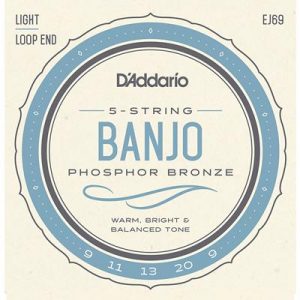 There is a reason that some things are more popular than others, and this is because they are usually well made. I mean why would anyone buy the same thing over and over again if the item is made of a poor quality? The free market means that only the best things become popular. In the case of D’Addario EJ69 Phosphor Bronze 5-string light banjo strings, this becomes way more obvious than you would have expected. This set is one of the most popular choices for 5 string banjos thanks to their warm, full tone despite the fact that they are light gauge. A combination of stainless steel and phosphor bronze strings, these strings have one of the best sets of tonal ranges and ease of playing a musician could ask for. The only thing is that while these strings are very durable for being light, you will still have to think of being cautious not to break them with over bending, or other banjo techniques your hands are itchy to try on this set of strings. Otherwise this is a great option for updating the sound on your banjo.
There is a reason that some things are more popular than others, and this is because they are usually well made. I mean why would anyone buy the same thing over and over again if the item is made of a poor quality? The free market means that only the best things become popular. In the case of D’Addario EJ69 Phosphor Bronze 5-string light banjo strings, this becomes way more obvious than you would have expected. This set is one of the most popular choices for 5 string banjos thanks to their warm, full tone despite the fact that they are light gauge. A combination of stainless steel and phosphor bronze strings, these strings have one of the best sets of tonal ranges and ease of playing a musician could ask for. The only thing is that while these strings are very durable for being light, you will still have to think of being cautious not to break them with over bending, or other banjo techniques your hands are itchy to try on this set of strings. Otherwise this is a great option for updating the sound on your banjo.
Ernie Ball Earthwood 5-string Banjo 80/20 Bronze Loop End Frailing Set
 Whenever I am stuck trying to decide what direction to go with when buying new strings, I start hours and hours browsing all the options hoping to find the one and only. Often times I end up on the Ernie Ball website and find myself looking at strings that are both quite affordable and high quality. Which is awesome because my wallet loves things that are both good and affordable. In the case of these strings Ernie Ball became the saviour we all need, but one that we never deserved. The Ernie Ball Earthwood 5 String Banjo 80/20 Bronze Loop End Frailing Set is one of the better string sets you can get for the price it is offered in. With a nice 80/20 bronze alloy that allows for great sound and flexibility, these strings guarantee you a long lifetime of playing and a great tonal range and sound. These strings have a number of great qualities that will make you happy for a very long time.
Whenever I am stuck trying to decide what direction to go with when buying new strings, I start hours and hours browsing all the options hoping to find the one and only. Often times I end up on the Ernie Ball website and find myself looking at strings that are both quite affordable and high quality. Which is awesome because my wallet loves things that are both good and affordable. In the case of these strings Ernie Ball became the saviour we all need, but one that we never deserved. The Ernie Ball Earthwood 5 String Banjo 80/20 Bronze Loop End Frailing Set is one of the better string sets you can get for the price it is offered in. With a nice 80/20 bronze alloy that allows for great sound and flexibility, these strings guarantee you a long lifetime of playing and a great tonal range and sound. These strings have a number of great qualities that will make you happy for a very long time.
GHS Strings PF145 5-String Banjo Strings, Stainless Steel

If you’re a banjo player looking for strings that offer durability and a crisp, clear tone, GHS Strings PF145 5-String Banjo Strings are worth checking out. These strings are designed with a phosphor bronze fourth string, which gives a warm, rich resonance that stands out in bluegrass and folk settings. The plain steel strings balance perfectly, delivering a bright, punchy sound that cuts through the mix.
One thing I noticed is how well these strings maintain their tuning stability, even after hours of jamming or practicing. They also feel great under your fingers—smooth enough for slides and bends without feeling too slick.
The packaging is moisture-resistant, keeping the strings fresh until you’re ready to use them. Whether you’re a seasoned picker or just starting out, these strings strike a perfect balance between tone, longevity, and playability. Give them a shot—they might become your go-to set!
Martin V730 Vega Banjo Strings, Medium
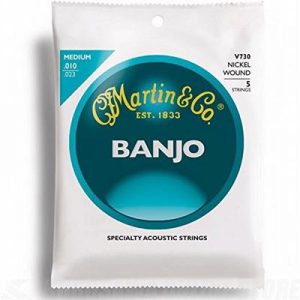 If you are tired of the world telling you that the best things all cost a lot and you need to sell at least one of your kidneys to get your hands on, I have great news for you. The Vega banjo manufacturers who have been in business since the 1889s are also tired of that very premise. They have been making banjos by hand and know that the true value of the instrument, and its constituents, is how the musician will end up playing it. Which is why they are producing their own strings as well at a price that does makes jaws drop because of the affordability. The most beautiful thing about them beyond the price is that they are actually good quality, made by people who know what a good banjo should sound like. This is why they have a great tonal range and sound just as strong as some of the most luxurious strings on the market. So go ahead, pick these up and knock yourself out with the fun.
If you are tired of the world telling you that the best things all cost a lot and you need to sell at least one of your kidneys to get your hands on, I have great news for you. The Vega banjo manufacturers who have been in business since the 1889s are also tired of that very premise. They have been making banjos by hand and know that the true value of the instrument, and its constituents, is how the musician will end up playing it. Which is why they are producing their own strings as well at a price that does makes jaws drop because of the affordability. The most beautiful thing about them beyond the price is that they are actually good quality, made by people who know what a good banjo should sound like. This is why they have a great tonal range and sound just as strong as some of the most luxurious strings on the market. So go ahead, pick these up and knock yourself out with the fun.
How to choose banjo stings?
Picking a set of strings for your instrument may seem like a simple task without too many complications, but there is much more depth to the subject than you would initially think. Deciding what type of strings you want means considering several details about your instrument and the sound you want to be making, as well as your style of play. There are some questions you need to ask yourself before you begin the actual search for the strings. Here is a sample set to start you off:
- How many strings does your banjo have?
- Do you have a specific gauge preference?
- Do you have a specific preference for materials?
If you do not have answers to these questions, then let me give you a short summary of what effect each one of these decisions has on the sound and playability of your guitar, hoping that this will assist you in the final decision.
Number of Strings
The number of strings that can be wound onto your banjo determine several things for your string purchase decision. First of all, they limit you in the string sets that you can acquire – the more strings you can wound onto a banjo the more thick, low register strings you will have in the set. These strings tend to be thicker and sometimes end up being wound strings. This means that you will have to consider the type of material wounding you would like your strings to have.
Four-string banjos do not usually have wound strings. All four strings are plain and sound very bright and light to the ear.
Five-string banjos usually have a wound B String, also known as the fourth string. This may change depending on whether the banjo is a long neck or not, adding another woven string as the 3rd string on the banjo.
6 String banjos also happen to have wound strings, but can also be highly customized to have different numbers of them.
Thankfully, if you do not want to go through the headache and customization of deciding whether you want wound strings or not, banjo string sets usually offer a baseline string set that will fit your banjo.
Gauge
Deciding the gauge of the strings for your banjo is one of the most important decisions you will be making in relation to your instrument. The effect on sound and playability is drastically changed by your decision, resulting in some techniques becoming more useful than others, while some sounds become less available than others. Here is a quick rundown:
The thinnest gauge is .0095-.010-.013-.020-.0095, also known as the light gauge. These strings are easily bendable and susceptible to techniques and are sensitive to overtones that would not be easily accessible on heavier gauges. Still, some techniques put a lot of strain on these strings, and being as thin as they are, results in breaking them easily.
The Medium Light gauge range is .010-.011-.012-.020-.010. In this range the strings come into their own, allowing for a nice balance between flexibility and overtone sensitivity, as well as the fullness of tone and sturdiness that the lightest gauge lacks.
The Medium is the range of .010-.012-.016-.023-.010. Here is where the fullest tones of the banjo pour through the strings. These are harder to bend and manipulate though, so that some techniques are required. Still the sturdiness and the fullness of sound you will be getting out of these sets is definitely worth a try.
Materials
There are several types of materials that strings are made of. All of these have an effect on the sound of the strings that you might want to consider before buying. Do remember – not all materials are well fitted for all playing.
Nickel-Coated Steel is the material you will see most often used to make banjo strings. These have a bright tone and strong projection, making them a popular choice for the basic string set and among many musicians.
Phosphor Bronze produces a deep, warm tone that enhances the lower register sound beautifully. Which is why it is often used on the 4th wound string of the 5 string banjo.
Stainless Steel is not the most popular choice, but you will encounter it from time to time. Quite sturdy and rust-resistant, these strings have a balanced tone and are smooth to the touch. Nothing to write home about but definitely a strong choice.
Coated strings are strange – they use any number of metal materials as base, often steel, but are usually coated with a polymer to enhance the durability and corrosion resistance of the strings. The strangest thing is that you cannot hope to have the same effect from all coated strings, as all manufacturers have their own tonal characteristics for their coated strings.
Conclusion
The banjo is not a mysterious instrument. It is an instrument of long, complicated history with a simple design and a unique, beautiful sound that anyone can find the heart to enjoy. So why should you worry so much about what you are buying for it, if it is so simple and so on the nose about its capabilities? Well, as much as the instrument is simple, the sound honest, there is still a need to take care of it. Only with the best of quality materials will you able to produce the right kind of sound, the type of sound that you feel to be what you want to play. Any musical instrument is an extension of you, as already mentioned once, and as much as it is a physical representation of your character, it is also a sonic manifestation of your thought. The only way to make the instrument truly yours is by two means: to play it the way you want to play it and to customize it into what you want it to be. Experimenting with strings, picking just the right ones, and playing with them to the specification of your thought is thus one of the ways to truly make the instrument a part of you, to make the great music you know you can play. Which is why you need to pick the best banjo strings, the best capos and the best accessories you can get your hands on. What is the point of an instrument if it is not yours in its entirety?

 (4.8 / 5)
(4.8 / 5)
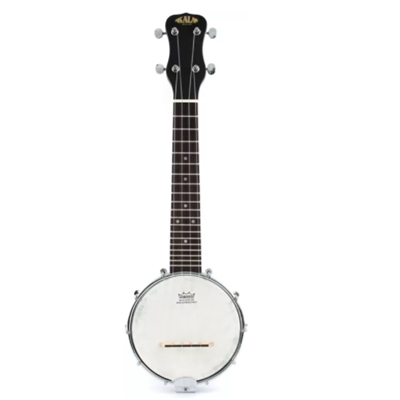
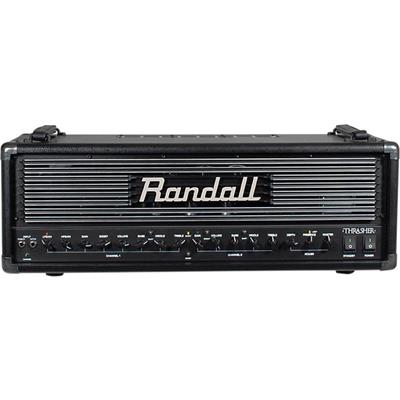


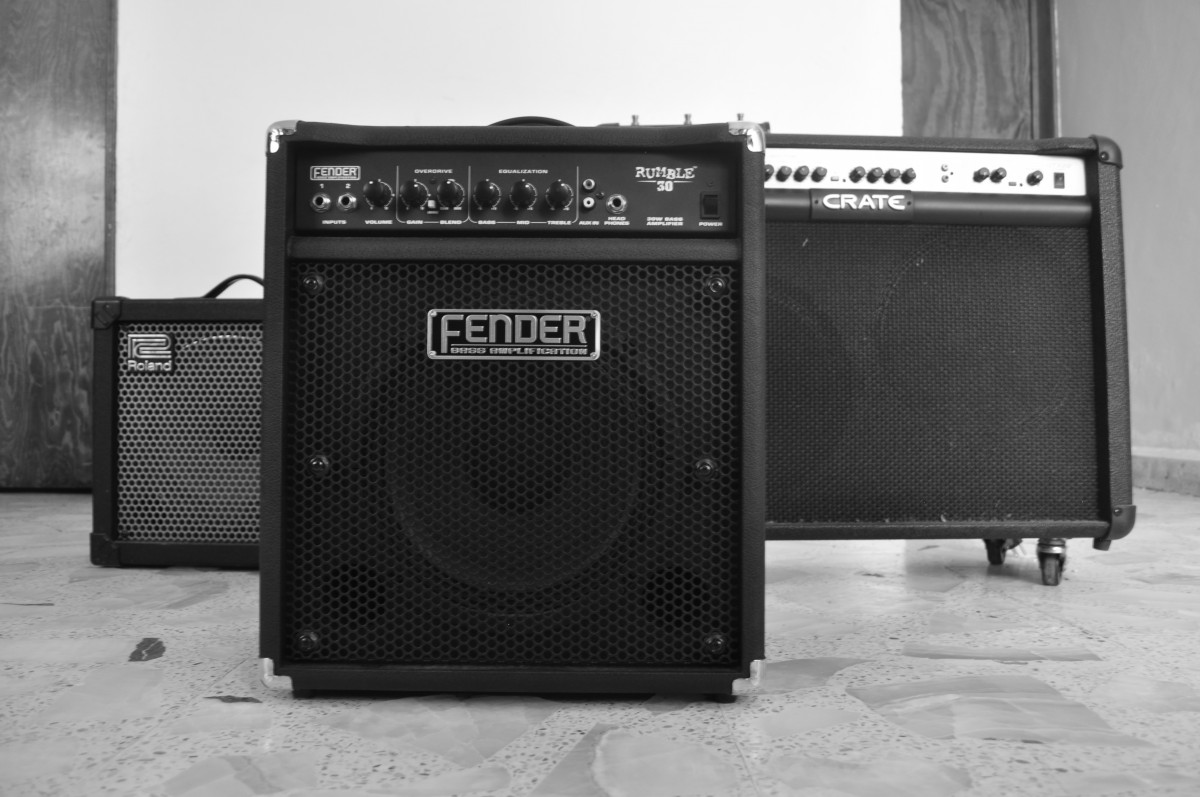
You have answered every question I’ve ever had in regards to banjo strings, and more I never thought about. I appreciate you taking the time to share your knowledge with this old banjo picker